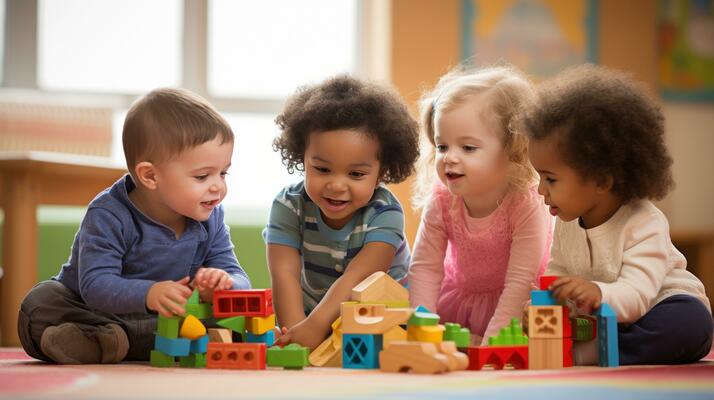
6 More Ways to Help Teach Social Skills to Kids with Autism
If you read our previous post on 6 Ways to Help Teach Social Skills to Kids with Autism and found it useful, you may want to keep reading. Here are 6 More Ways to Help Teach Social Skills to Kids with Autism.
- Joint Attention Skills: Teaching joint attention skills, such as sharing attention and focus with others, can improve social interactions and enhance the child’s ability to engage in reciprocal play. Please do not force eye contact. Some children have trouble with eye contact, and asking them to look into a person’s eyes is not the best approach. As long as they acknowledge the person by looking their way or looking at some other part of the face, that’s great!
- Emotional Regulation: Helping children with autism understand and regulate their emotions is essential for social success. Techniques like emotional labeling and mindfulness can be beneficial.
- Social Narratives: Social narratives or stories that explain social situations and appropriate behaviors can be used to prepare children for social interactions and reduce anxiety.
- Social Playgroups and Inclusion: Encouraging children with autism to participate in social playgroups and inclusive settings can provide opportunities for social practice and interaction with peers.
- Parent and Caregiver Training: Teaching parents and caregivers strategies to support social development at home can reinforce the skills learned in therapy or school settings.
- Individualize Your Approach: Recognize that every child with autism is unique, and interventions should be tailored to their specific strengths and challenges. Assess their individual needs and preferences to develop effective strategies.
Once again, it’s important to note that interventions should be evidence-based and conducted by trained professionals who specialize in autism spectrum disorders. Additionally, consistent and ongoing support is often necessary to help children with autism generalize their social skills across various settings and contexts.
Please enquire about our Early Learner Play Groups: We teach parents how to teach communication, play and social skills to young children with Autism.
Related Posts
4 Very Important Reasons we offer Parent Training in Autism Treatment
Parents are the cornerstone of a child's early life. 1.- Empowerment and...
Parent Training in ABA: An Important Treatment Component
We offer Parent Training at no extra cost because Parent Training is a very...


